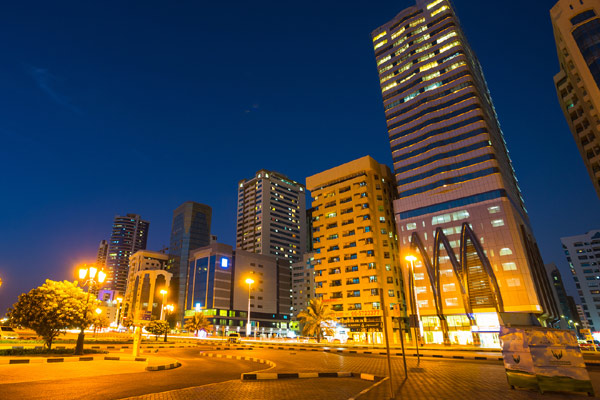
Sharjah economy slows; growth may stay at 4pc
NEW YORK, December 2, 2016
The economy of Sharjah, a UAE emirate, has slowed with nominal GDP growth expected to remain around 4 per cent into 2017 compared to 6 per cent on average in 2010-2015, said Moody's Investors Service.
The economic slowdown pressures fiscal metrics, but Sharjah's debt burden and debt affordability are still low and compare well with peers, Moody's said.
The recent rise in debt reflected capital expenditure and fiscal loosening to address economic slowdown on the back of lower oil prices. Sharjah's debt increased with the issuance of a $500 million sukuk in January 2016 and a previous sukuk issuance of $750 million in September 2014.
"Sharjah has diversified its sources of funding. Debt denominated in US dollars accounts for roughly half of Sharjah's outstanding debt. International investors held 62 per cent of the government's debt and the share will likely increase after taking into account the 2016 issuance," said Mathias Angonin, an analyst at Moody's.
Moody's report, entitled "Government of Sharjah -- A3 stable: Annual Credit Analysis," is available on www.moodys.com.
Moody's assessment incorporates the preliminary results of the 2015-16 Census, which points to a large upward revision in population figures, to 1.41 million from 0.86 million as of end-2015. This revision underlines the shortcomings in data transparency that are captured in its assessment of Sharjah's institutional strength, and leads to a lower estimate of Sharjah's GDP per capita PPP, to $31,000 from $49,100, it said.
Moody's said inflation volatility is slightly lower for Sharjah than for the UAE because of the smaller reliance on volatile foreign capital flows and more extensive foreign ownership controls. Similar to the UAE, inflation in Sharjah has been subdued since mid-2015 and has fallen steeply since the start of 2016, increasing by only 0.2 per cent year-on-year in August 2016. This reflects a favourable base effect from the fuel price hikes that took effect in August 2015 and pressure on food and fuel prices from lower commodity prices, as well as the cooling real estate
market in the country.
It said three developments underway could bring more predictability to Sharjah's fiscal policies. First, the government is devising a medium-term fiscal strategy, which along with similar initiatives in other emirates aims to enhance fiscal coordination in the UAE. Second, the proceeds of a planned value-added tax to be introduced in 2018/19 will be shared by the UAE federal government and individual emirates. Although that share has not yet been set, Moody's considers that a VAT will increase the stability of Sharjah's government revenue. Third, the Sharjah government is integrating decentralised departments. After the Roads and Transport Authority (RTA) in 2015, Sharjah plans to consolidate the accounts of the Sharjah municipality in 2017, while the Awqaf department will be integrated at a later stage, it said. - TradeArabia News Service







